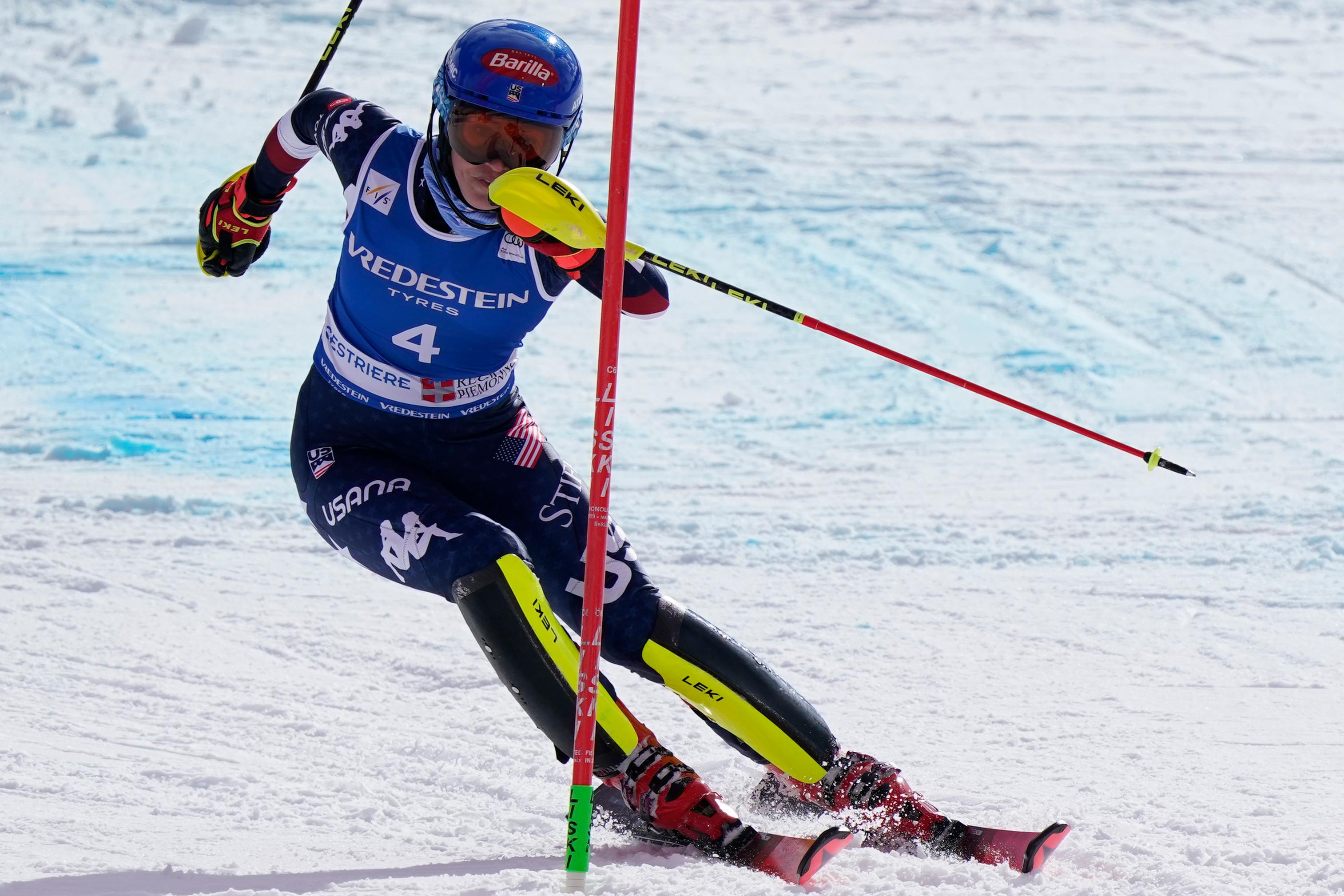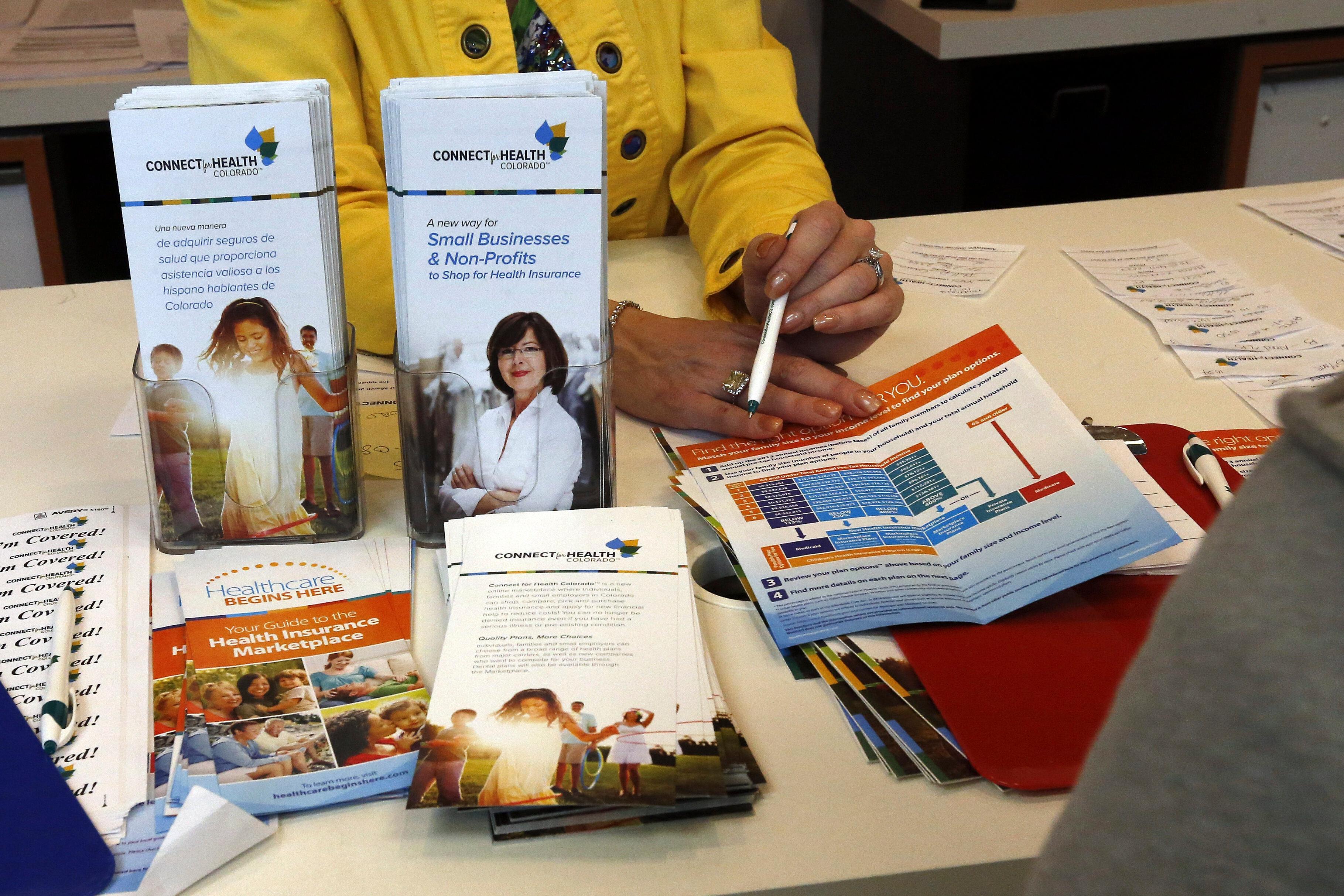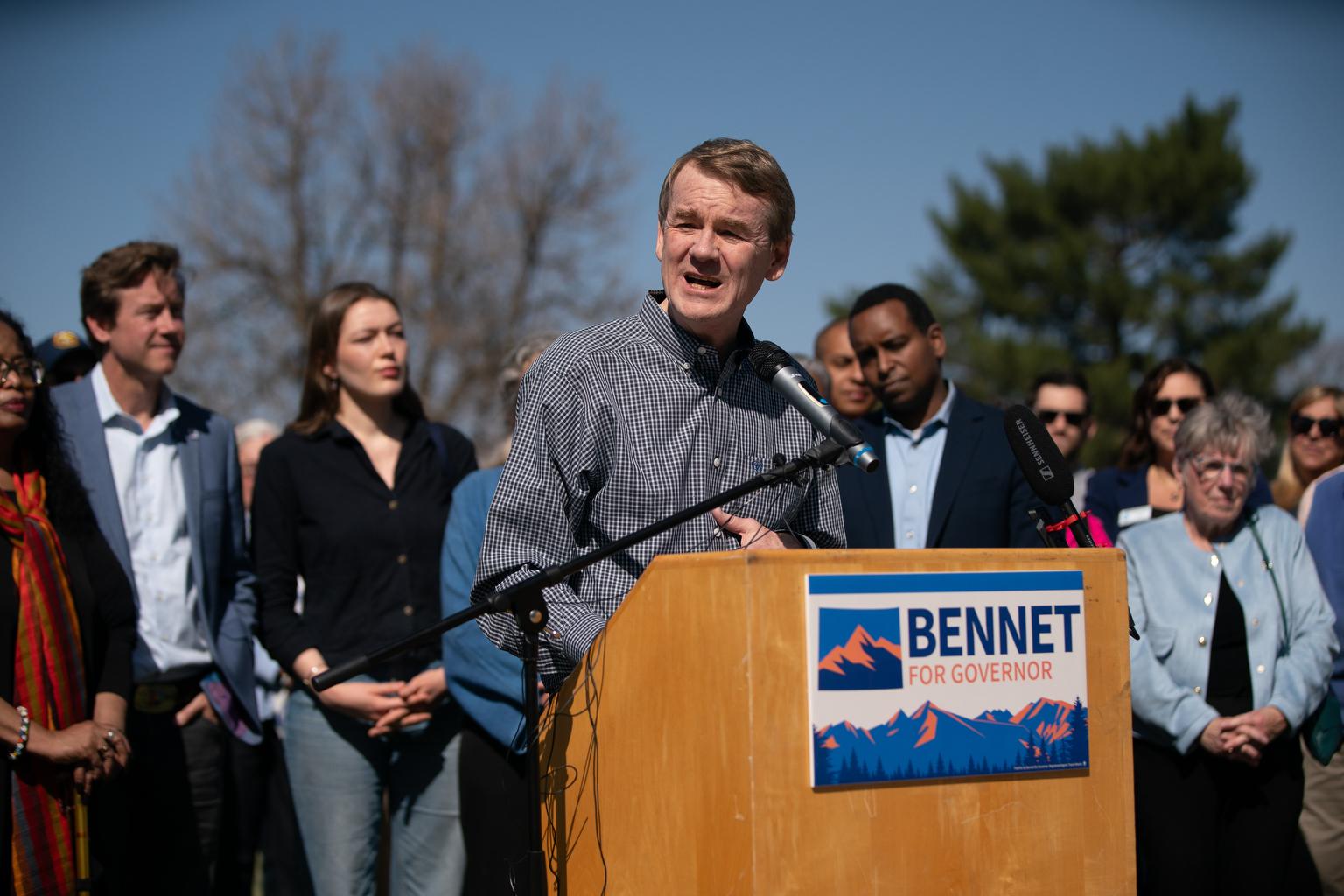
Political influencer Katie Grossbard offers a steady stream of inspiring messaging, political news and calls to action for liberals on Instagram.
In May, that included a video of an interview with U.S. Sen. Michael Bennet about his run for governor of Colorado. Perched on a stone wall, Grossbard asked the senator about the vibes in Washington and the role of governors, and she said political leaders should tell young people their plan “to make it better.”
Grossbard also had an opportunity to interview Bennet’s top competitor for that job, Attorney General Phil Weiser. But that hasn’t happened, and for one apparent reason: Her management said it could cost Weiser’s campaign as much as $2,000 to reach her quarter-million Instagram followers, according to emails obtained by CPR News.
When Weiser’s team reached out to offer an interview, Grossbard’s representative was initially enthusiastic. The idea of interviewing Weiser sounded “like a great fit and something she'd genuinely be excited to explore,” talent manager Alexa D’Amato responded, the emails showed.
But, D’Amato added, “Quick question: do you have a budget allocated for this type of social content? Looking forward to hearing more!”
Weiser’s team said there was no budget for paid influencer content. D’Amato replied that they could revisit the question down the line, with Grossbard’s rates for Instagram posts ranging from $750 to $2,000, the emails showed.
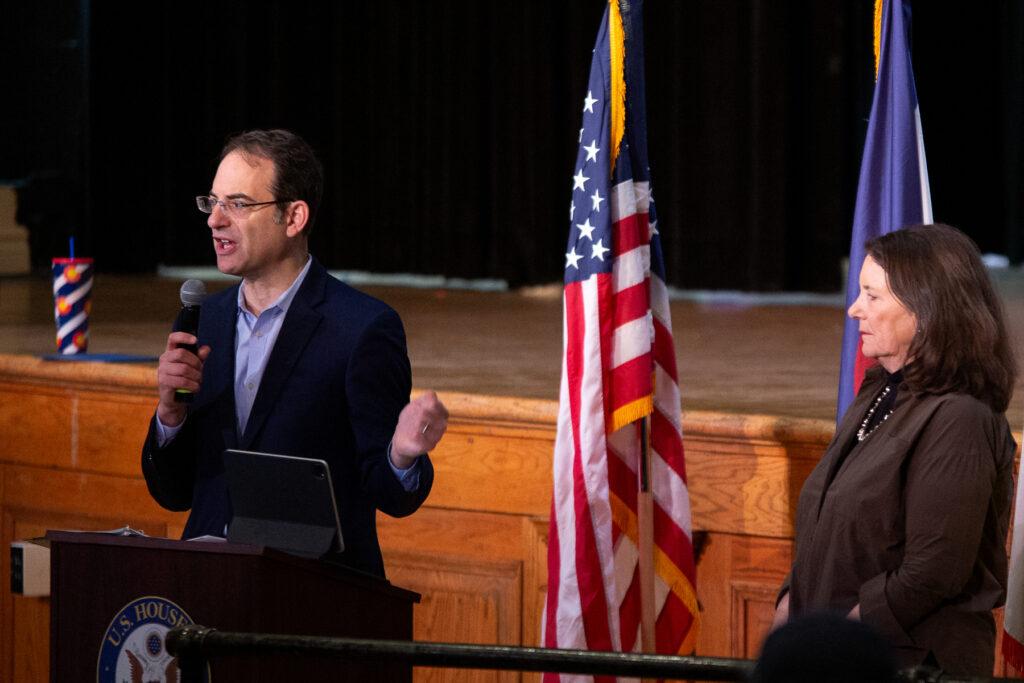
In a statement to CPR News, D’Amato denied that Sen. Bennet had paid for his interview. But she confirmed that other candidates were quoted prices for similar content.
“To clarify, Katie’s conversation with Senator Bennet was completely organic and not compensated in any way. She knows Senator Bennet personally, and the interview came about naturally through that connection,” D’Amato wrote to CPR News.
“When other teams have inquired in the past, we’ve shared her general branded content rates simply to provide context for potential future partnerships - not to imply that any specific interview, including this one, was paid or offered on that basis. We have no further comment.”
Bennet’s team similarly said it had not paid to be featured on Grossbard’s account. But the request for payment from Weiser’s team points to the way influencers are blurring the line between journalism and paid advertising.
Grossbard markets herself as “building a community that can be informed without being overwhelmed. Daily news, political coverage, and action items.”
In American journalism, the idea of politicians paying to be featured in editorial content is strictly forbidden, as it undermines the independence and balance of the publication. But sponsored content has become a lucrative source of income for influencers on TikTok and Instagram, including in the political realm — and it isn’t always obvious to the audience.
In Denver, the Vibrant Denver bond campaign recently paid local influencers to post positive messages about the debt spending proposal. Those posts included disclaimers. On the national level, a group of influencers received up to $8,000 a month to make posts supporting the Democratic Party, but creators weren’t required to publicly disclose the partnership, according to an investigation in Wired.
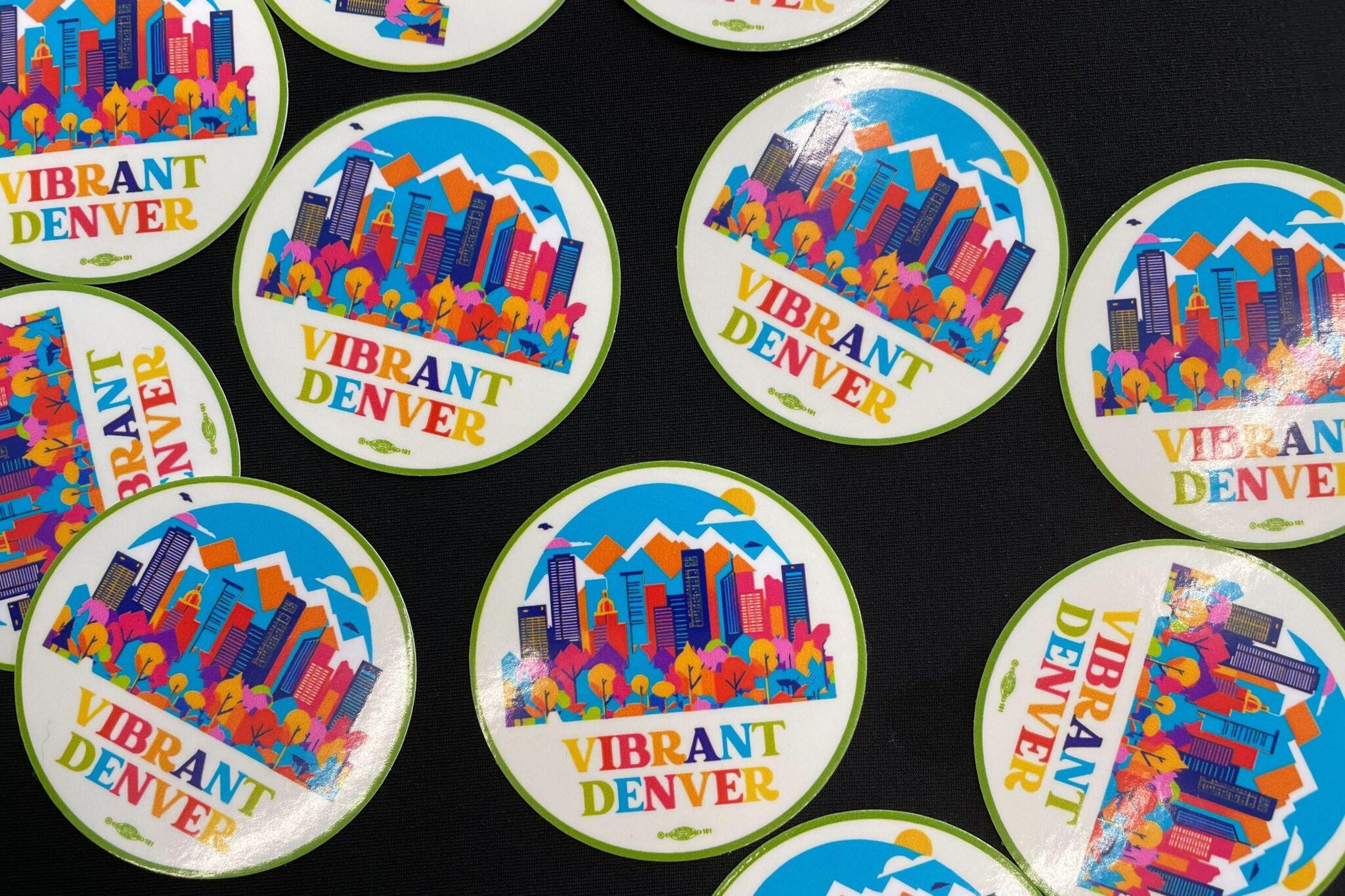
“I think what we’re seeing increasingly is more information out there, more people producing this information, and we're not really sure what it is,” said Corey Hutchins, manager of the Journalism Institute at Colorado College and ethics chair for the state board of the Society of Professional Journalists.
“Unfortunately, the onus is more and more on the consumer — I think less and less we’re seeing these kinds of creators be transparent about what they’re doing and whether it's journalism, how close it is to journalism, or whether it's some other form of communication like sponsored content, propaganda, advertising.”
The nonprofit Campaign Legal Center has called for stronger rules about paid electioneering on social media.
“We are strongly in favor of the FEC regulating paid influencer political content like any other political ad – the content needs to feature a disclaimer that indicates it’s a paid political message and who paid for it,” said Saurav Ghosh, the organization's director for federal campaign finance reform, in a statement.
D’Amato did not reply Tuesday to a question about whether asking for money to feature candidates in interviews would undermine the idea that an influencer is providing a balanced or independent perspective.
Weiser’s campaign declined to comment.
Editor's Note: Colorado College owns KRCC's license but has no editorial influence. KRCC is operated by Colorado Public Radio.

